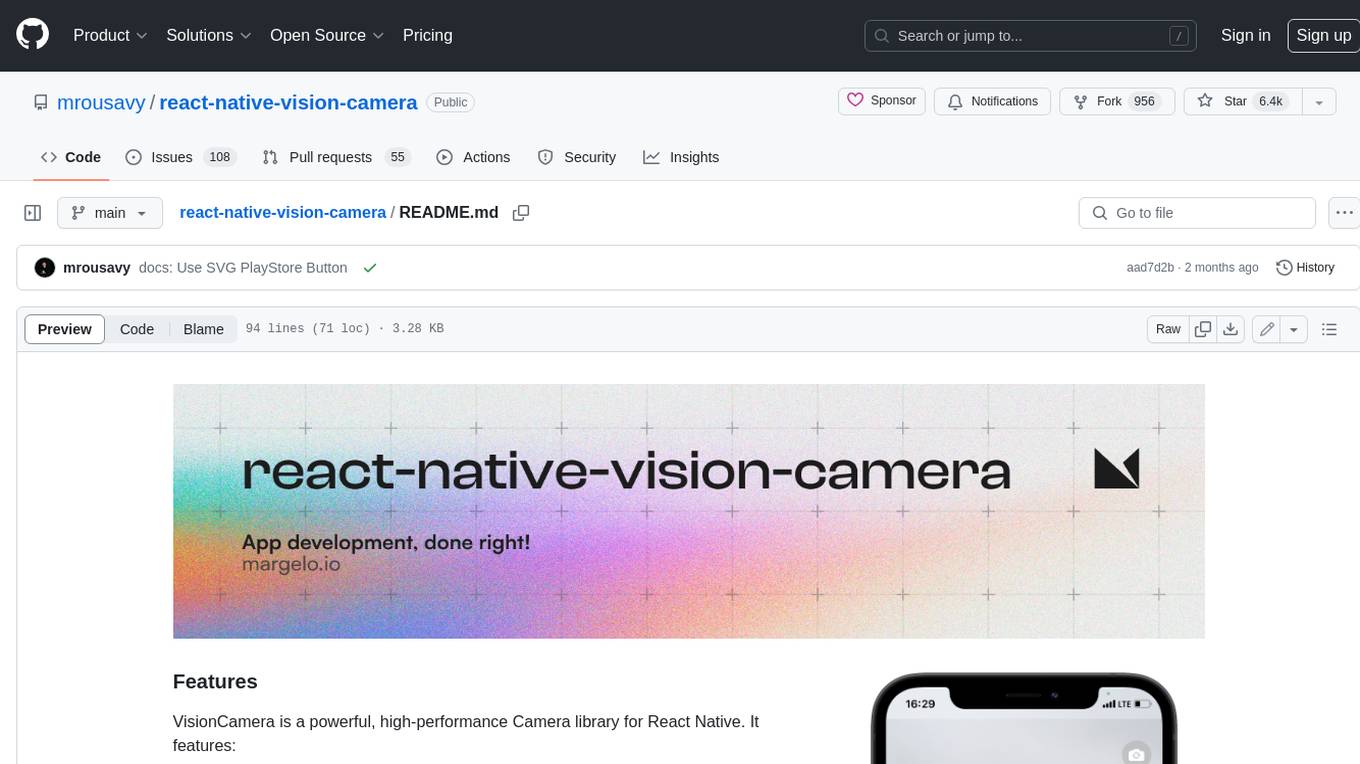AI tools for barcode scanning
Related Tools:
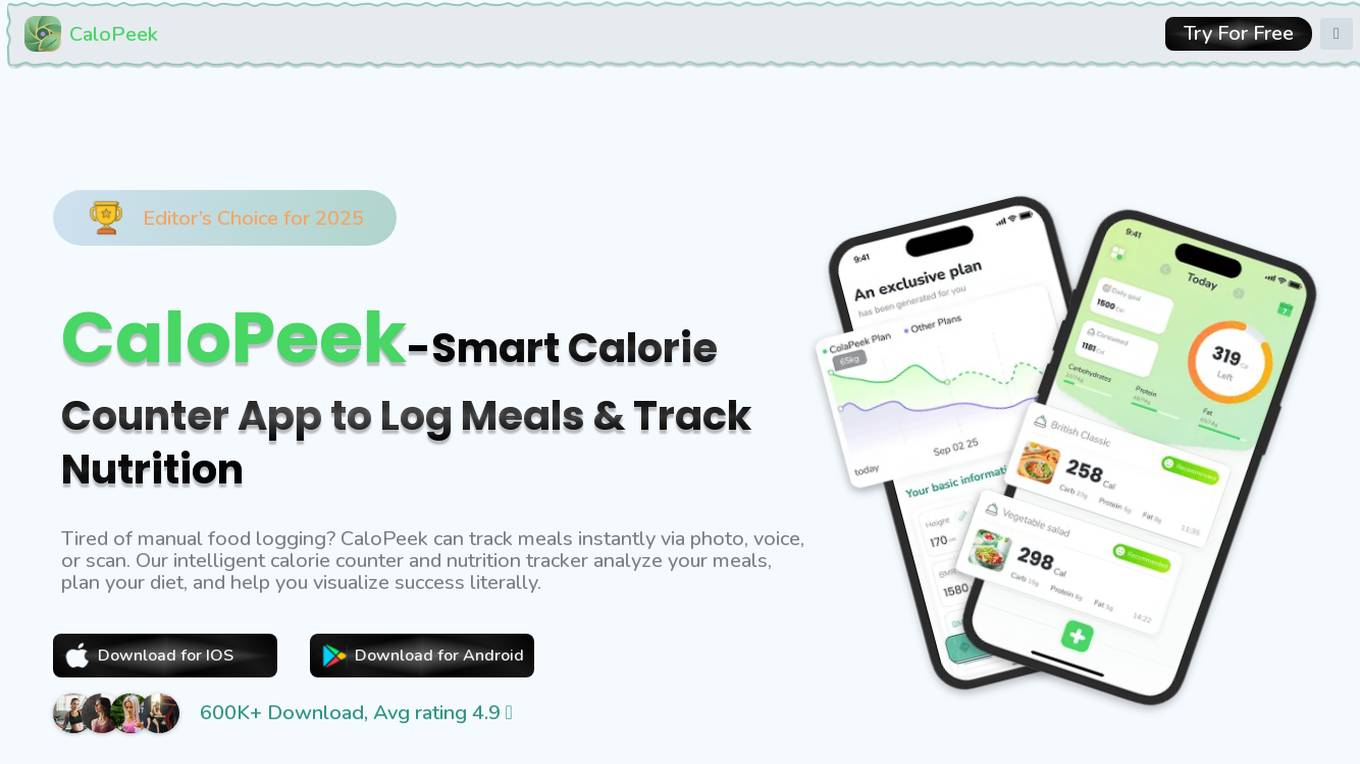
CaloPeek
CaloPeek is a smart calorie counter and nutrition tracker application that utilizes AI technology to help users track their meals, count calories, and monitor their nutritional intake. The app offers features such as photo-based logging, voice logging, barcode scanning, manual entry, advanced nutrition analysis, personalized meal plans, and daily recommendations. Users can receive real-time AI feedback, visualize their future self based on their current diet, and seamlessly integrate with health apps like Apple Health and Google Fit. CaloPeek provides comprehensive progress tracking and reports, making it a powerful tool for holistic health management.
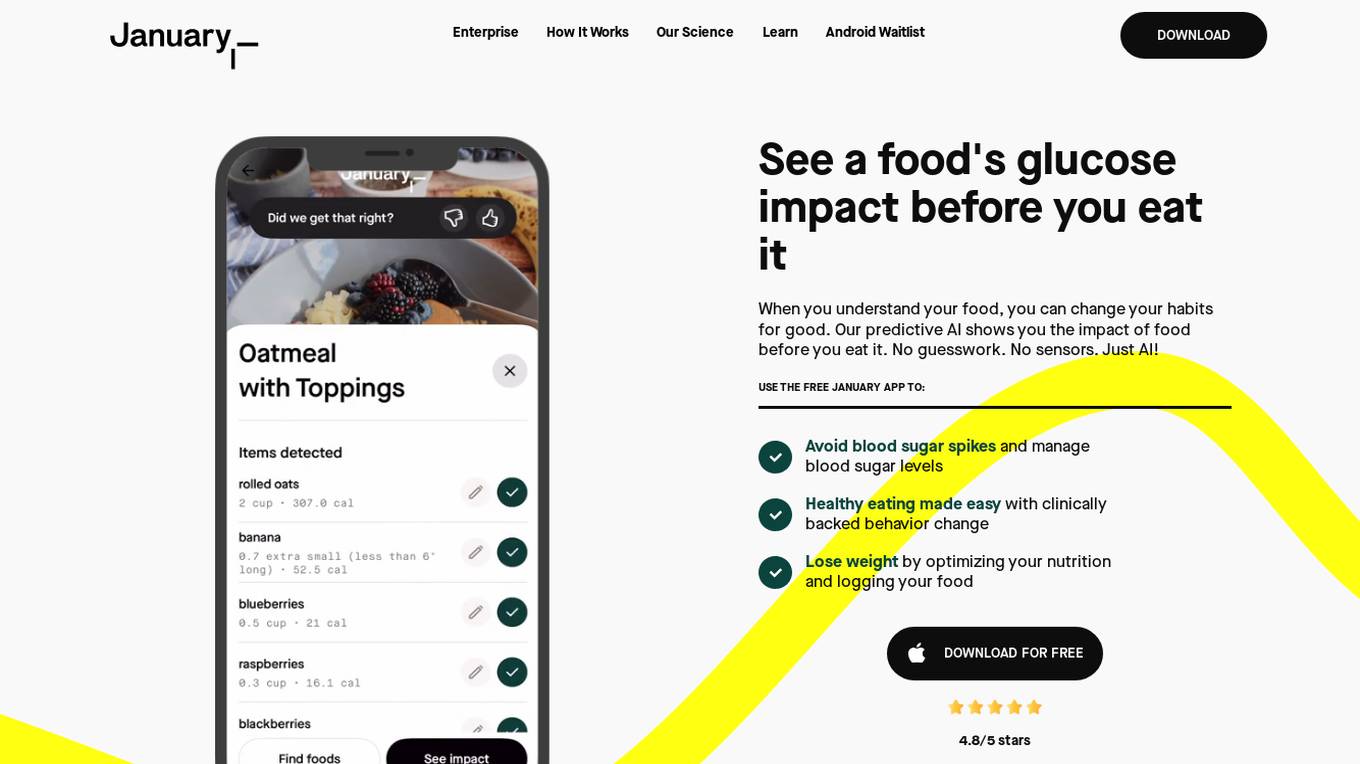
January AI
January AI is a free health app that utilizes predictive AI technology to help users monitor their blood sugar levels and make informed decisions about their nutrition. The app provides real-time insights on the glucose impact of various foods, offers nutrition facts, and suggests healthier alternatives. Founded by Dr. Michael Snyder and Noosheen Hashemi, January AI combines metabolic science with groundbreaking AI to empower users to optimize their nutrition and manage their blood sugar levels effectively.
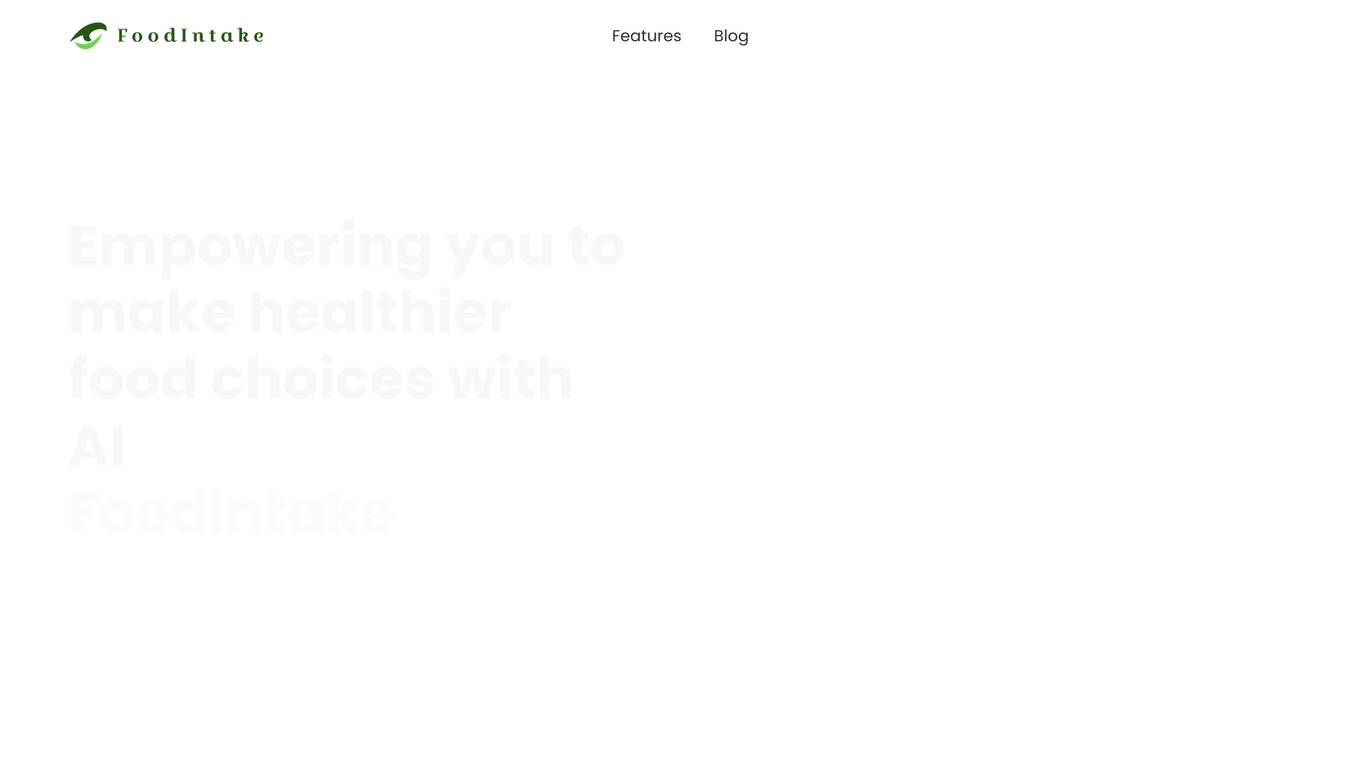
FoodIntake
FoodIntake is an AI-powered food tracking app that helps users make healthier food choices. It features a large database of branded foods, AI food analysis, and personalized nutrition recommendations. The app is easy to use and provides users with a comprehensive view of their diet, including calorie and nutrient intake, macronutrient distribution, and food processing levels.
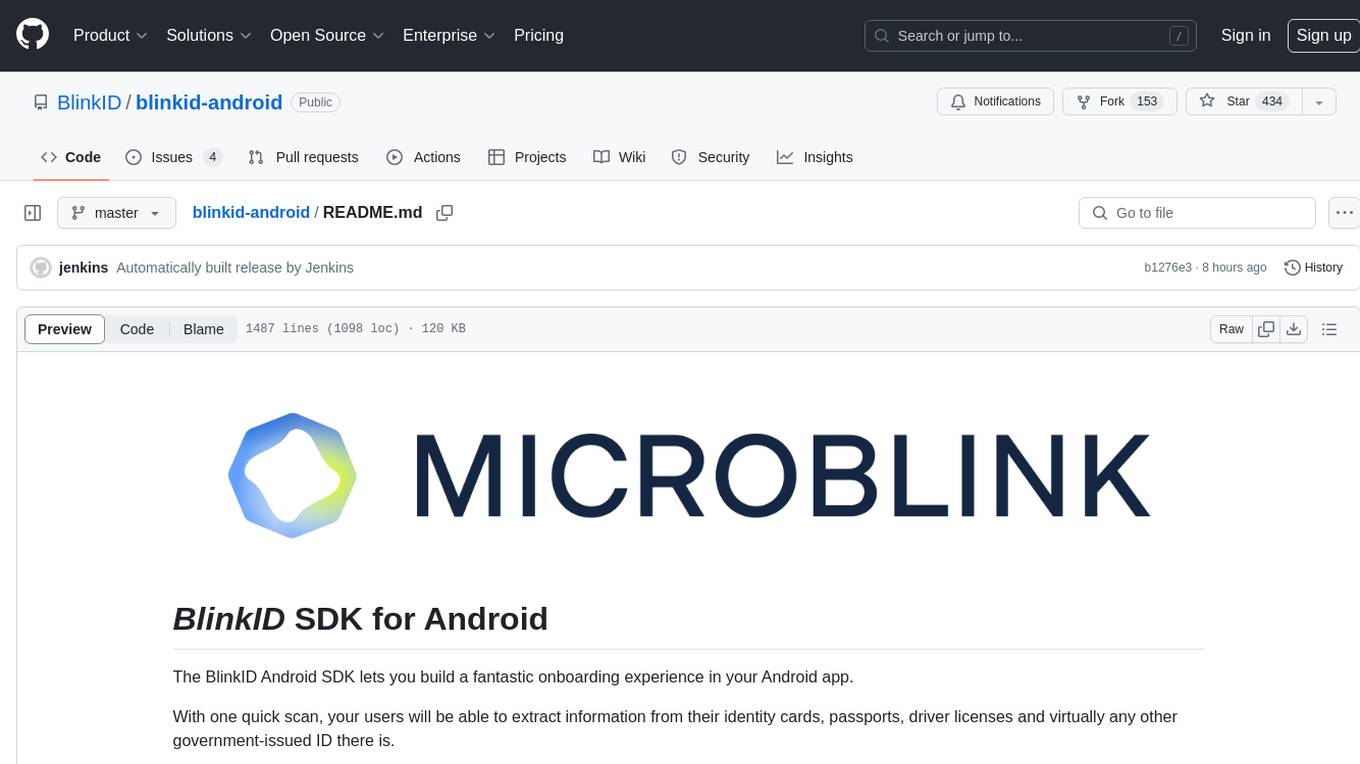
blinkid-android
The BlinkID Android SDK is a comprehensive solution for implementing secure document scanning and extraction. It offers powerful capabilities for extracting data from a wide range of identification documents. The SDK provides features for integrating document scanning into Android apps, including camera requirements, SDK resource pre-bundling, customizing the UX, changing default strings and localization, troubleshooting integration difficulties, and using the SDK through various methods. It also offers options for completely custom UX with low-level API integration. The SDK size is optimized for different processor architectures, and API documentation is available for reference. For any questions or support, users can contact the Microblink team at help.microblink.com.
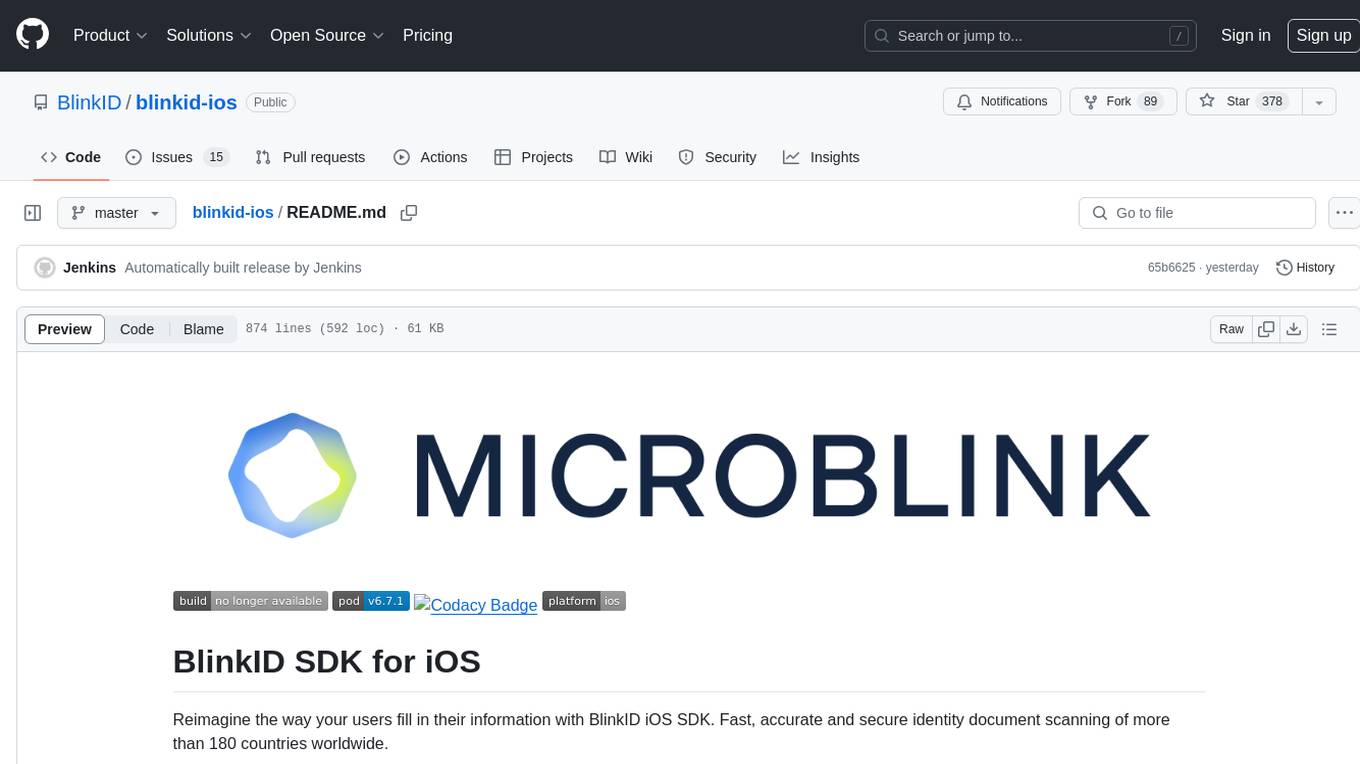
blinkid-ios
BlinkID iOS is a mobile SDK that enables developers to easily integrate ID scanning and data extraction capabilities into their iOS applications. The SDK supports scanning and processing various types of identity documents, such as passports, driver's licenses, and ID cards. It provides accurate and fast data extraction, including personal information and document details. With BlinkID iOS, developers can enhance their apps with secure and reliable ID verification functionality, improving user experience and streamlining identity verification processes.
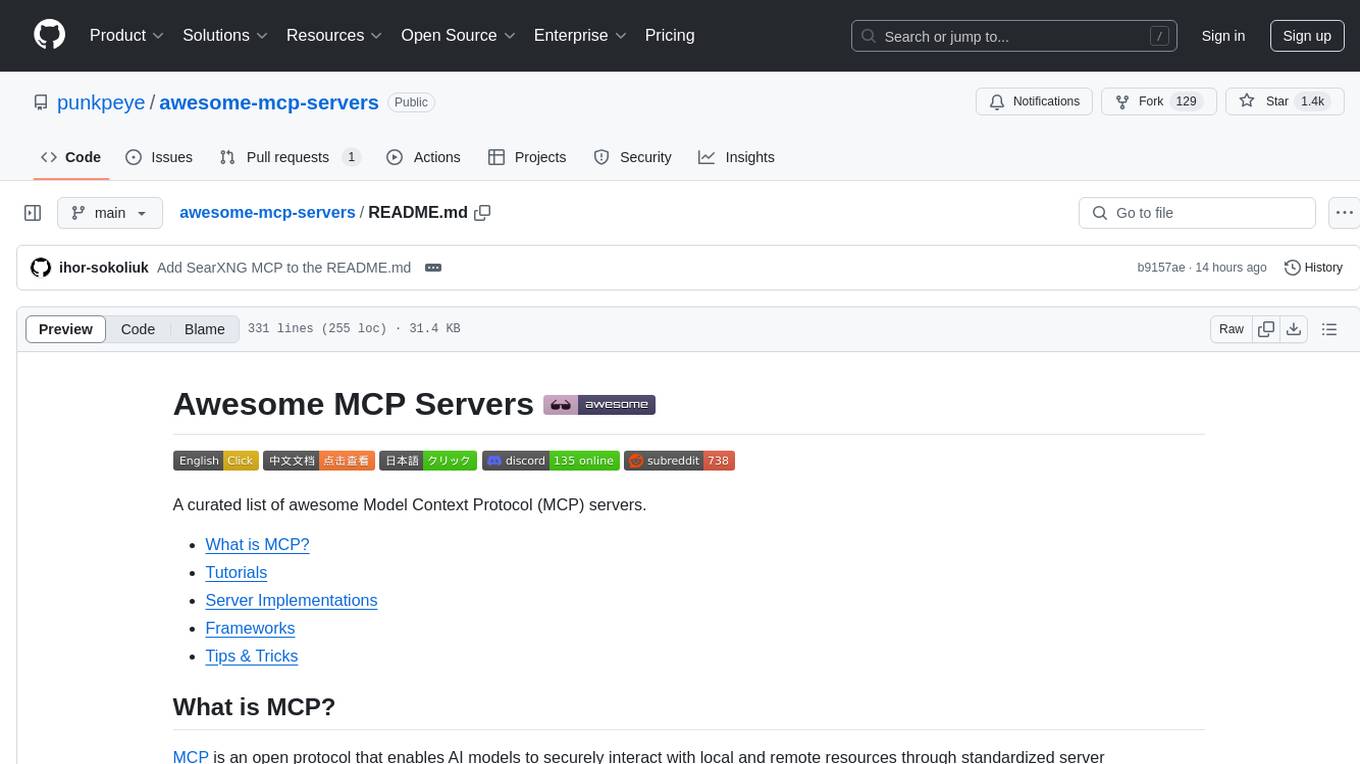
awesome-mcp-servers
Awesome MCP Servers is a curated list of Model Context Protocol (MCP) servers that enable AI models to securely interact with local and remote resources through standardized server implementations. The list includes production-ready and experimental servers that extend AI capabilities through file access, database connections, API integrations, and other contextual services.
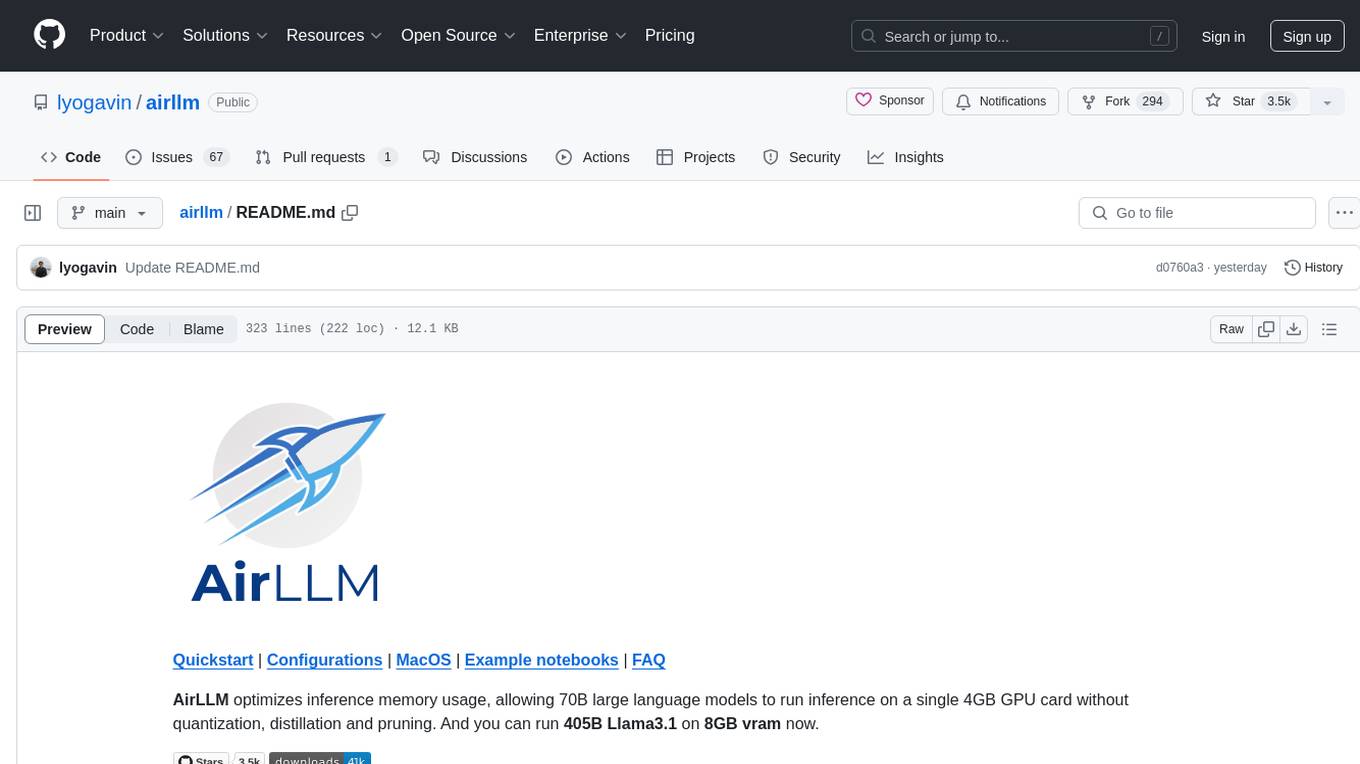
airllm
AirLLM is a tool that optimizes inference memory usage, enabling large language models to run on low-end GPUs without quantization, distillation, or pruning. It supports models like Llama3.1 on 8GB VRAM. The tool offers model compression for up to 3x inference speedup with minimal accuracy loss. Users can specify compression levels, profiling modes, and other configurations when initializing models. AirLLM also supports prefetching and disk space management. It provides examples and notebooks for easy implementation and usage.
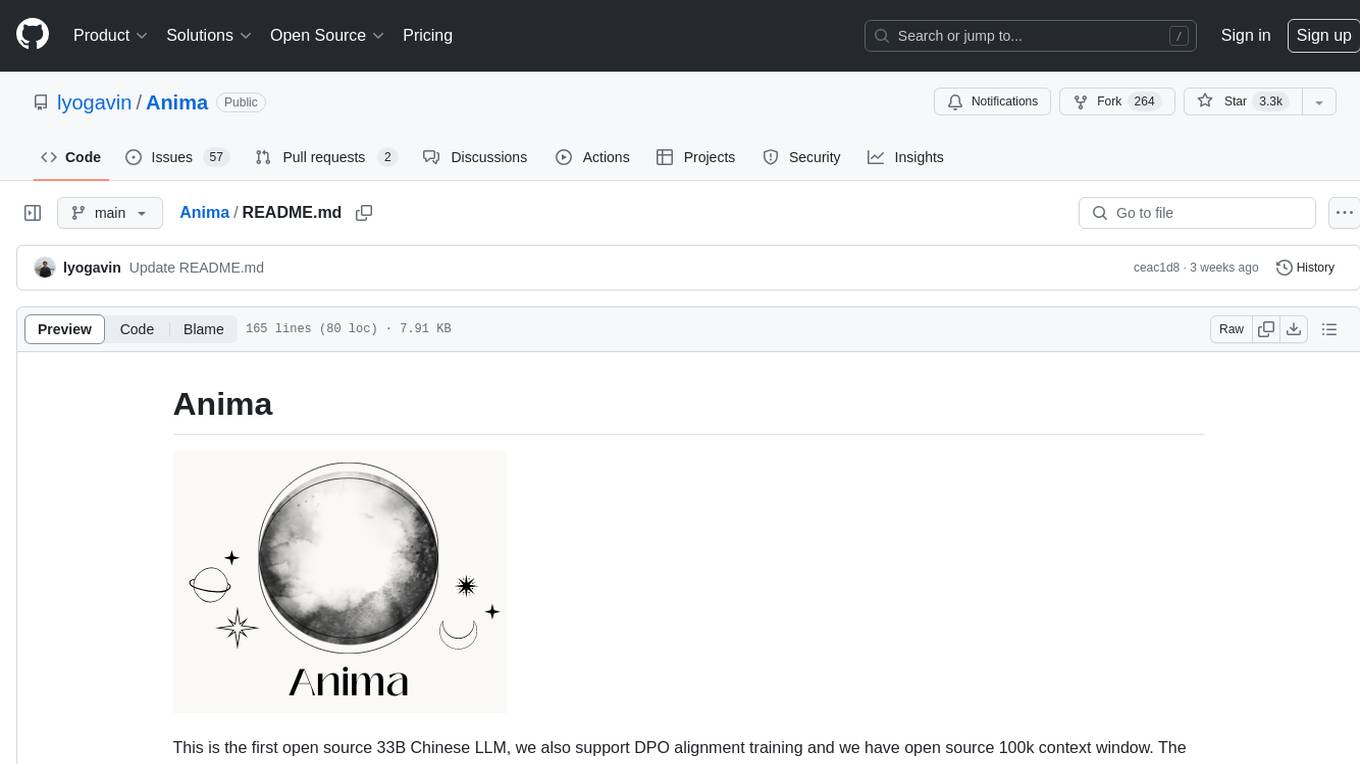
Anima
Anima is the first open-source 33B Chinese large language model based on QLoRA, supporting DPO alignment training and open-sourcing a 100k context window model. The latest update includes AirLLM, a library that enables inference of 70B LLM from a single GPU with just 4GB memory. The tool optimizes memory usage for inference, allowing large language models to run on a single 4GB GPU without the need for quantization or other compression techniques. Anima aims to democratize AI by making advanced models accessible to everyone and contributing to the historical process of AI democratization.
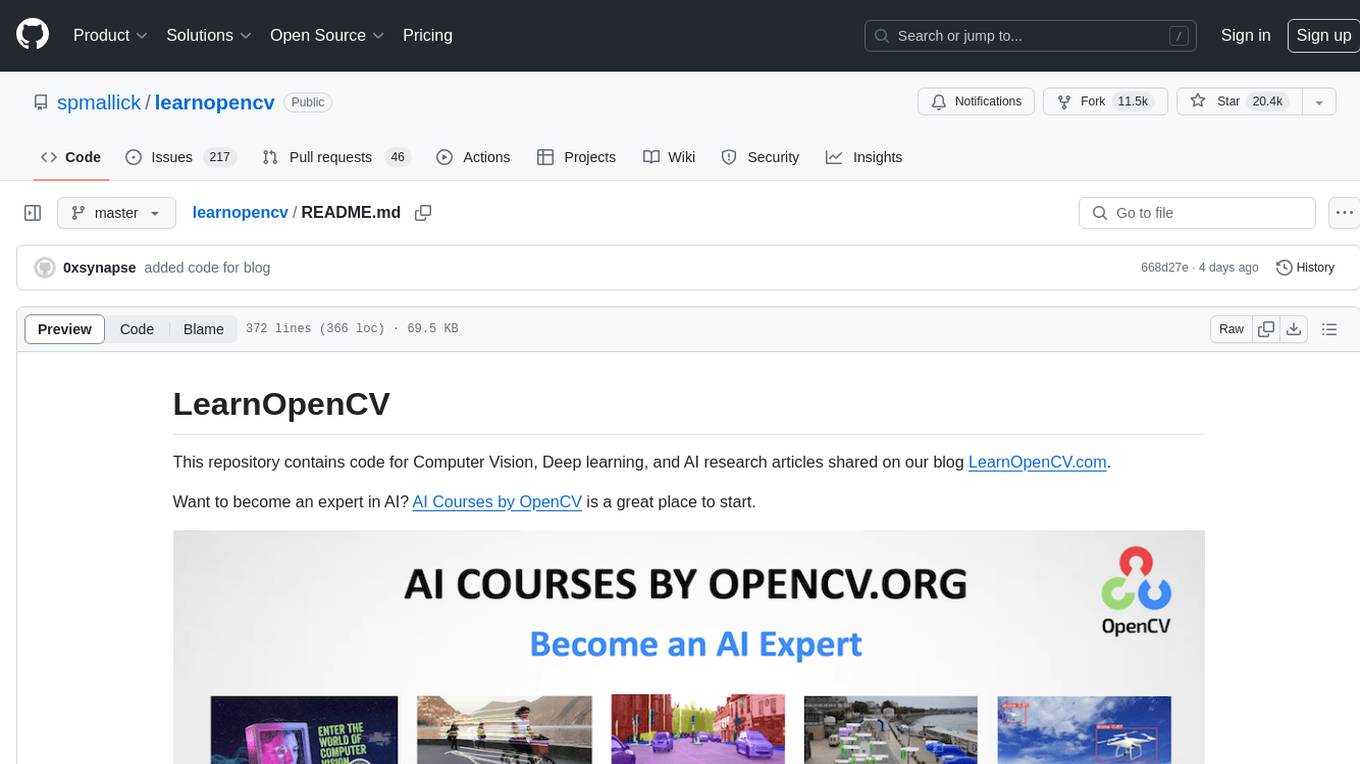
learnopencv
LearnOpenCV is a repository containing code for Computer Vision, Deep learning, and AI research articles shared on the blog LearnOpenCV.com. It serves as a resource for individuals looking to enhance their expertise in AI through various courses offered by OpenCV. The repository includes a wide range of topics such as image inpainting, instance segmentation, robotics, deep learning models, and more, providing practical implementations and code examples for readers to explore and learn from.
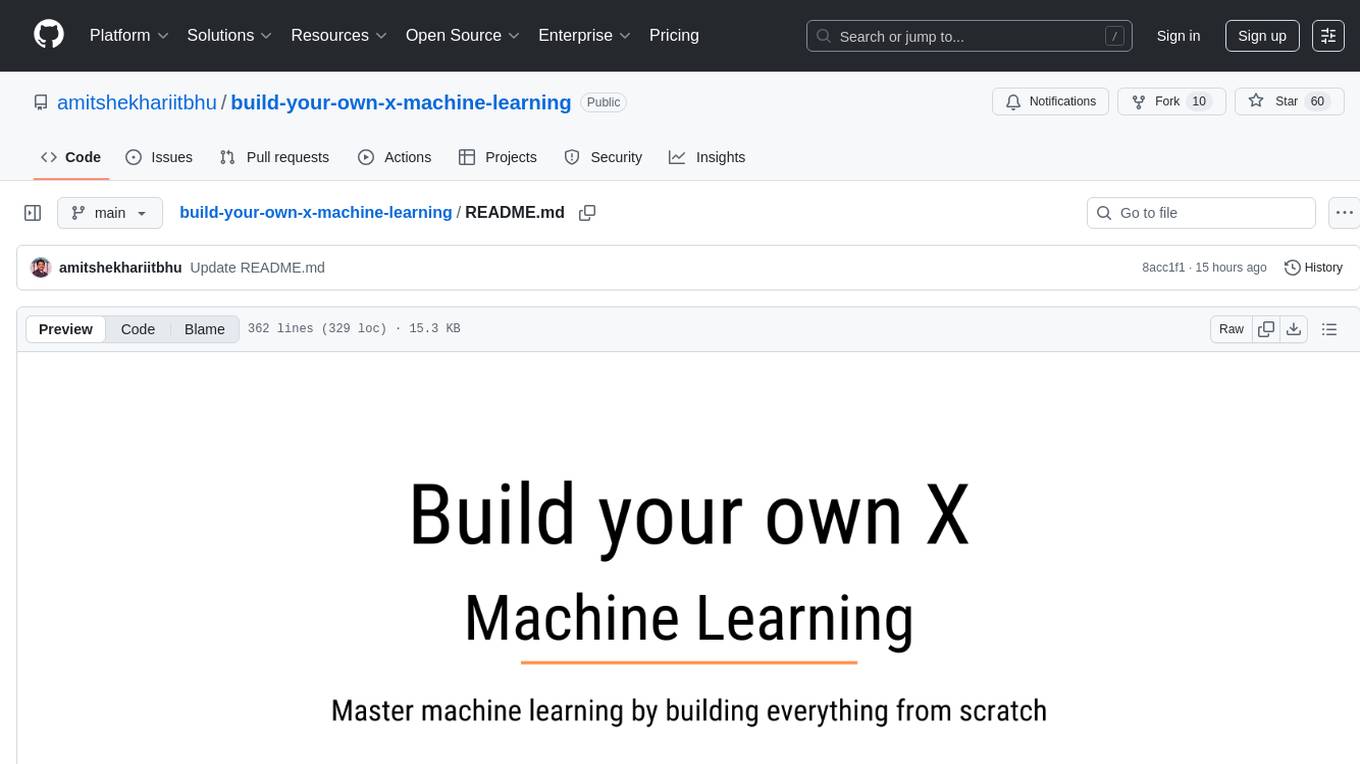
build-your-own-x-machine-learning
This repository provides a step-by-step guide for building your own machine learning models from scratch. It covers various machine learning algorithms and techniques, including linear regression, logistic regression, decision trees, and neural networks. The code examples are written in Python and include detailed explanations to help beginners understand the concepts behind machine learning. By following the tutorials in this repository, you can gain a deeper understanding of how machine learning works and develop your own models for different applications.
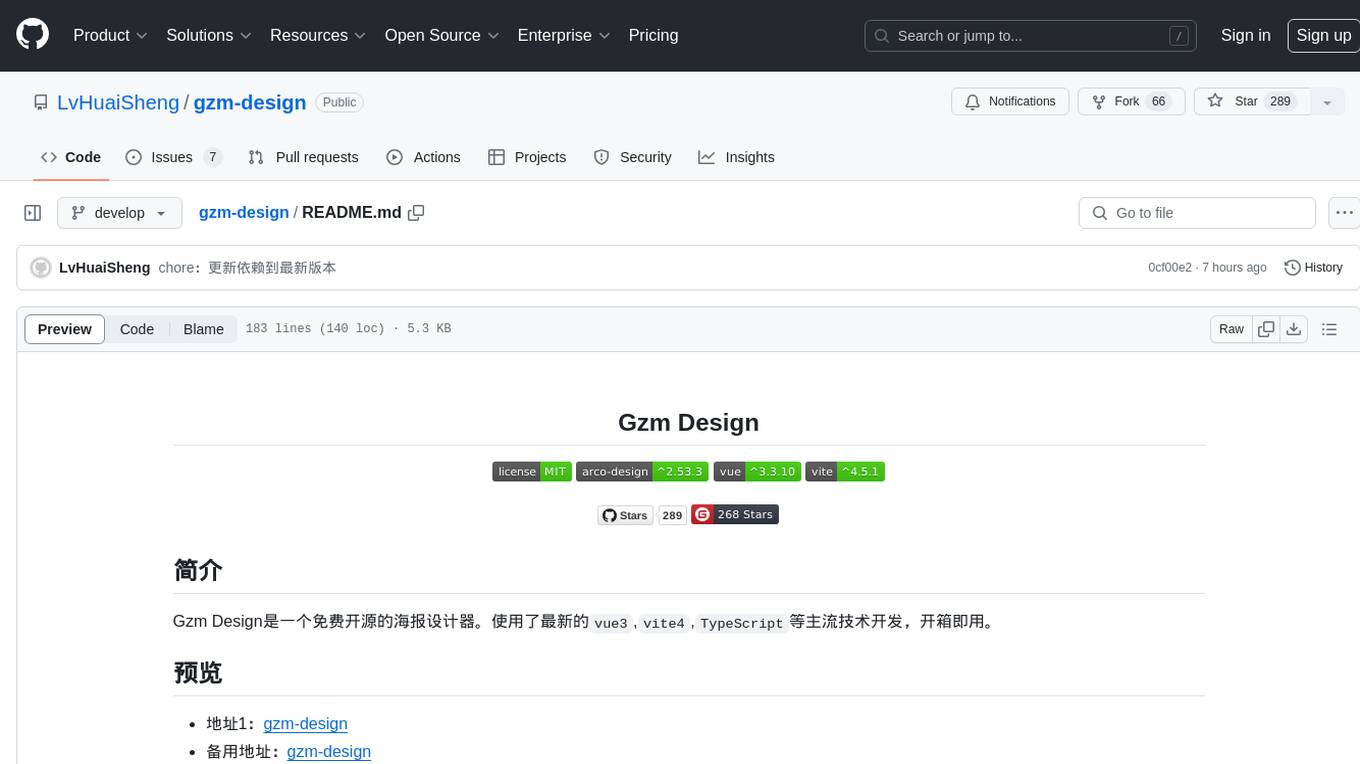
gzm-design
Gzm Design is a free and open-source poster designer developed using the latest mainstream technologies such as Vue3, Vite4, TypeScript, etc. It provides features like PSD import, JSON import, multiple pages support, shortcut key support, template import, layer management, ruler tool, pen tool, element editing, preview, file download, canvas zooming and dragging, border stroke, filling, blending modes, text formatting, group handling, canvas size modification, rich text support, masking, shadow effects, undo/redo functionality, QR code tool, barcode tool, and ruler line npm package encapsulation.
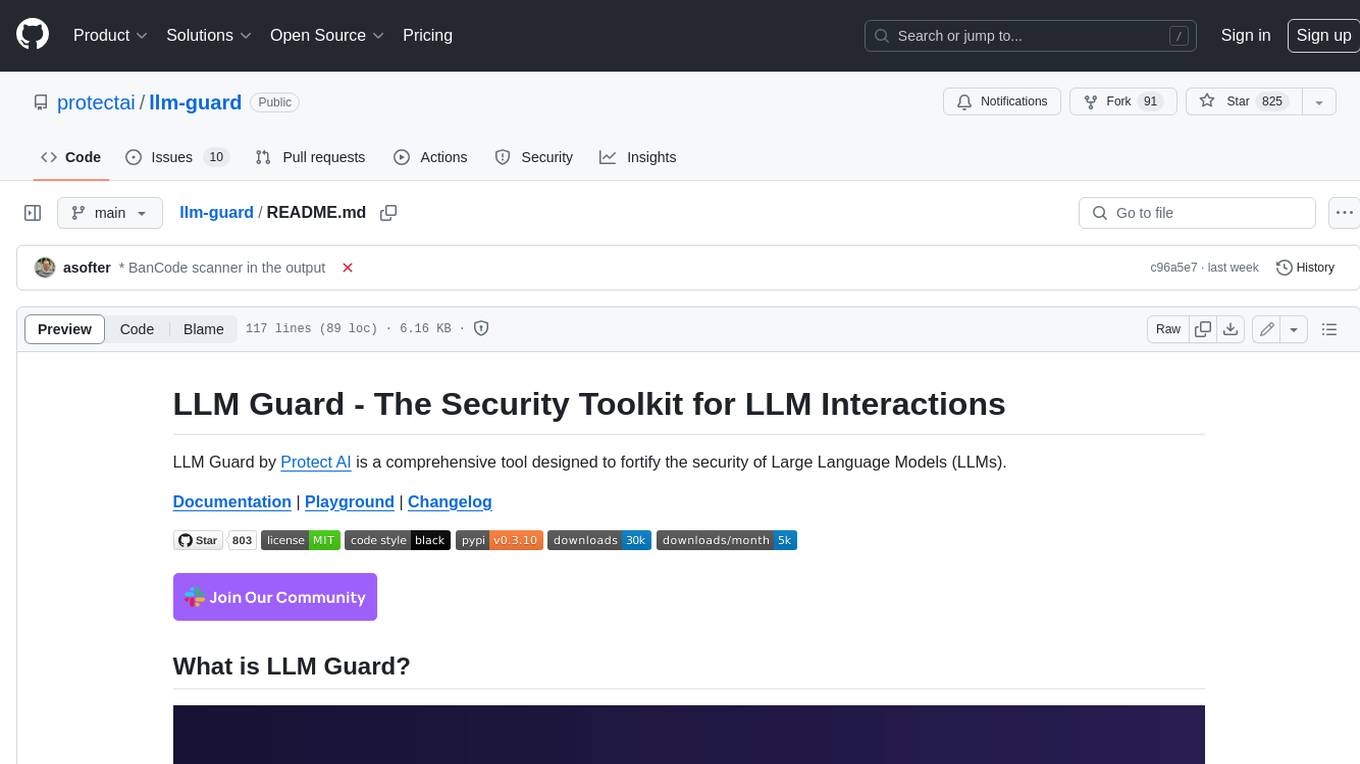
llm-guard
LLM Guard is a comprehensive tool designed to fortify the security of Large Language Models (LLMs). It offers sanitization, detection of harmful language, prevention of data leakage, and resistance against prompt injection attacks, ensuring that your interactions with LLMs remain safe and secure.
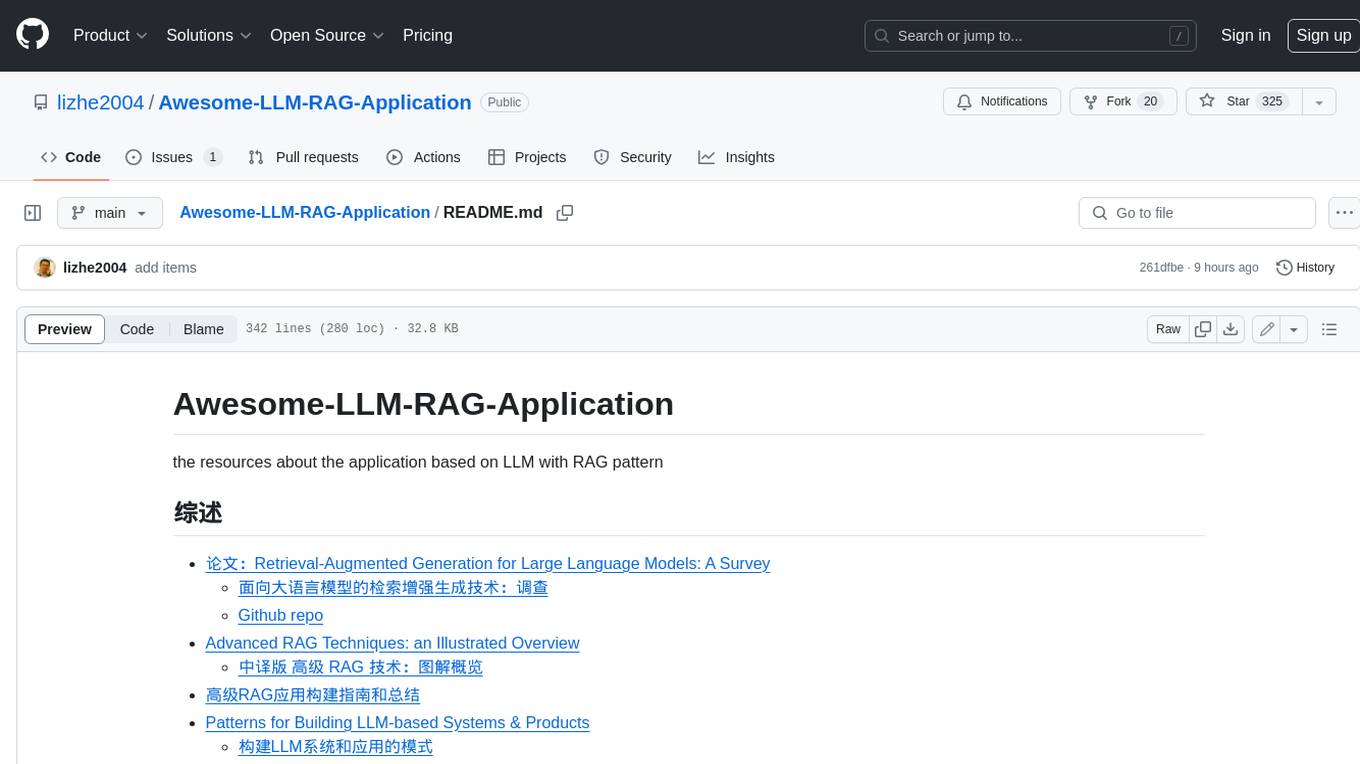
Awesome-LLM-RAG-Application
Awesome-LLM-RAG-Application is a repository that provides resources and information about applications based on Large Language Models (LLM) with Retrieval-Augmented Generation (RAG) pattern. It includes a survey paper, GitHub repo, and guides on advanced RAG techniques. The repository covers various aspects of RAG, including academic papers, evaluation benchmarks, downstream tasks, tools, and technologies. It also explores different frameworks, preprocessing tools, routing mechanisms, evaluation frameworks, embeddings, security guardrails, prompting tools, SQL enhancements, LLM deployment, observability tools, and more. The repository aims to offer comprehensive knowledge on RAG for readers interested in exploring and implementing LLM-based systems and products.

